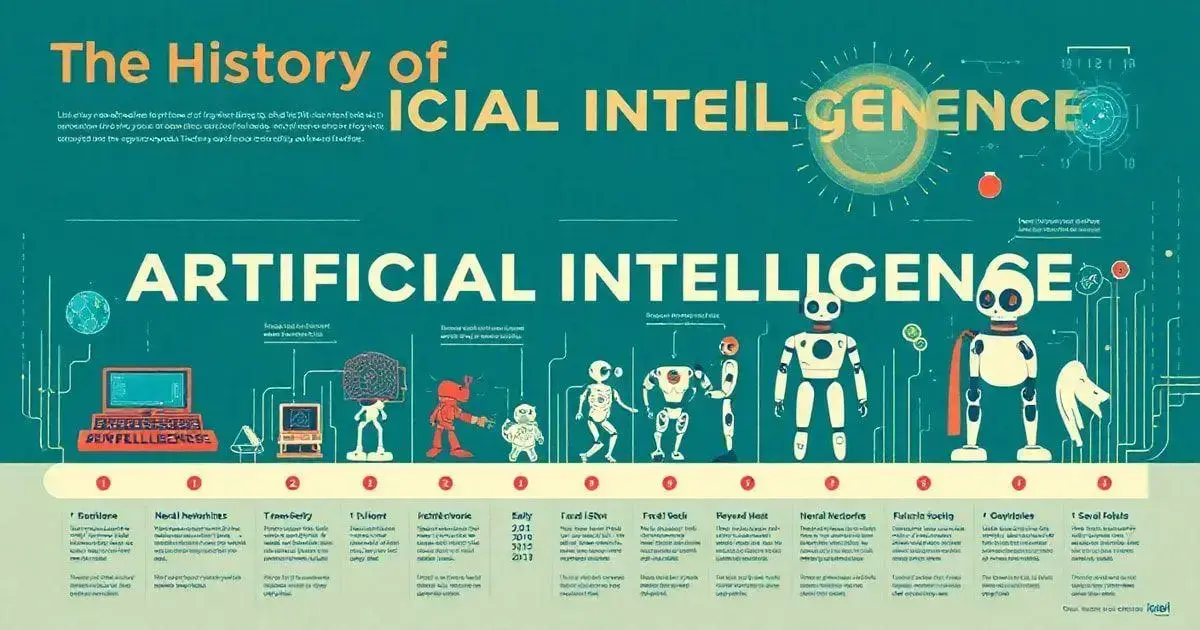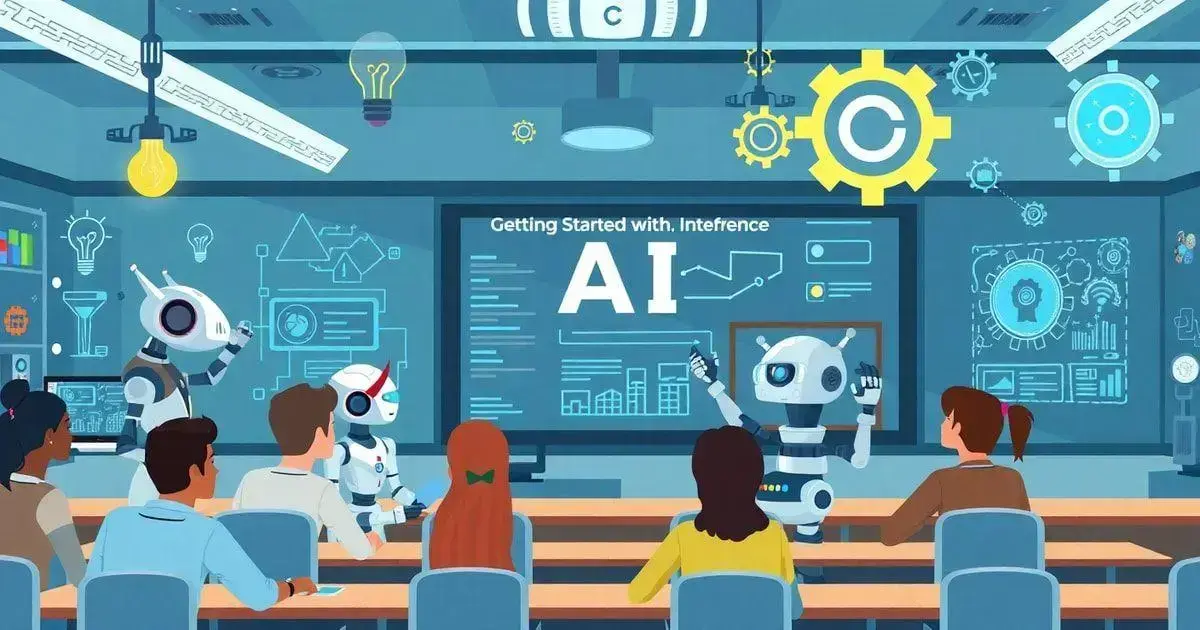Artificial Intelligence is no longer just a concept of the future; it’s a driving force behind innovation today. From simplifying daily tasks to revolutionizing industries, its impact is undeniable.
Understanding Artificial Intelligence is key to unlocking its potential, whether you’re an individual looking to stay ahead or a business aiming to innovate. Embracing this technology opens doors to endless possibilities.
As its influence grows, exploring how Artificial Intelligence transforms our world is essential. Discover the ways it can empower you to navigate and thrive in this evolving digital era.
What is Artificial Intelligence?
Artificial Intelligence (AI) refers to computer systems designed to perform tasks that typically require human intelligence. These tasks include learning, reasoning, problem-solving, perception, and language understanding. AI is being applied in various fields, from healthcare to finance, revolutionising the way we work and live.
There are two main types of AI: Narrow AI, which is designed to perform a narrow task (like facial recognition), and General AI, which aims to perform any intellectual task that a human can do. Today’s technology primarily revolves around Narrow AI, excelling in specific tasks but lacking the broader thinking of a human.
AI systems rely on algorithms and large amounts of data, making them capable of self-improvement over time. They learn from experience, adapting to new inputs and performing tasks with increased accuracy. This characteristic is particularly beneficial in industries that require data analysis and decision support.
For instance, in the healthcare sector, AI can help diagnose diseases by analysing medical images or predicting patient outcomes based on historical data. In retail, AI enhances the shopping experience through personalised recommendations and inventory management.
Understanding what AI is and how it functions is vital for harnessing its potential. With the ongoing advancements, staying informed about AI will enable individuals and businesses to leverage this powerful tool for growth and innovation.
The History of Artificial Intelligence

The History of Artificial Intelligence dates back to ancient times, with stories of artificial beings in Greek mythology. However, modern AI began in the 1950s, when computer scientists started exploring the concept of machines being able to mimic human thought processes.
In 1956, the Dartmouth Conference marked a pivotal moment in AI’s history. Researchers like John McCarthy and Marvin Minsky proposed that ‘every aspect of learning or any other feature of intelligence can in principle be so precisely described that a machine can be made to simulate it.’ This belief laid the groundwork for significant advancements in the field.
In the following decades, AI saw several periods of enthusiasm and disappointment, also known as AI Winters, where funding and interest in the field would wane. Yet, breakthroughs in algorithms, processing power, and data availability helped rejuvenate it. For instance, in the 1990s and early 2000s, notable progress was made with expert systems and machine learning.
By the 2010s, the rise of big data and enhanced computing capabilities led to remarkable improvements in AI capabilities, particularly in areas like image recognition and natural language processing. Major tech companies began to invest heavily in AI research, resulting in applications that changed industries worldwide.
Today, AI continues to evolve rapidly, making its mark in various areas, including healthcare, finance, and transportation. Understanding this history allows us to appreciate the rapid advancements and the potential that AI holds for the future.
Applications of Artificial Intelligence Today
Applications of Artificial Intelligence Today are transforming industries worldwide, delivering innovative solutions that improve efficiency and drive growth.
In healthcare, AI is revolutionizing diagnostics by analyzing medical images and predicting patient outcomes. Algorithms can detect anomalies in X-rays or MRIs with impressive accuracy, often exceeding the capabilities of human radiologists. This advancement is saving lives and enhancing medical precision.
The business sector leverages AI to enhance customer experiences through tools like chatbots and personalized marketing. Chatbots provide instant, 24/7 support, while AI-driven analytics enable companies to craft targeted strategies based on consumer behavior, boosting engagement and sales.
In finance, AI plays a pivotal role in analyzing market trends and executing real-time trading decisions. These algorithms outperform human traders in speed and precision, leading to increased profits and reduced risks in investment strategies.
Transportation is another domain witnessing AI-driven innovation. Self-driving cars utilize sensors and machine learning to navigate safely, reducing traffic congestion and enhancing road safety. Similarly, education benefits from AI through intelligent tutoring systems that adapt to individual student needs, creating personalized and engaging learning experiences.
The applications of AI are virtually limitless, impacting every aspect of life and work. Understanding these advancements enables individuals and businesses to harness AI’s transformative potential, paving the way for a more efficient and innovative future.
Benefits of Embracing Artificial Intelligence

Embracing Artificial Intelligence (AI) can lead to significant benefits for businesses and individuals alike. One of the main advantages is increased efficiency. By automating repetitive tasks, AI frees up valuable time for employees, allowing them to focus on more complex and creative aspects of their jobs.
Moreover, AI enhances decision-making by providing data-driven insights. By analyzing vast amounts of data quickly, AI systems can identify patterns and trends that humans might overlook. This capability enables businesses to make informed choices and develop effective strategies in real-time.
Another benefit of AI is personalisation. In customer service, AI can tailor interactions based on individual preferences, improving customer satisfaction. For example, recommendation systems used by online retailers suggest products based on previous purchases or browsing history, creating a unique shopping experience.
Additionally, AI contributes to cost savings. By automating processes and improving efficiency, businesses can reduce operational costs significantly. This saving can be reinvested in growth initiatives or new technologies.
Furthermore, businesses that adopt AI gain a competitive edge. With AI-powered tools, companies can innovate faster and respond to market changes more effectively. In today’s fast-paced environment, staying ahead of the competition is crucial.
In summary, embracing AI not only enhances operational efficiency but also promotes innovation, personalised experiences, and effective decision-making. As technology continues to evolve, the importance of leveraging these benefits will only grow.
Challenges Facing Artificial Intelligence
Despite the numerous advantages of Artificial Intelligence (AI), several challenges hinder its widespread adoption and implementation. One significant challenge is the lack of understanding among users. Many people are unsure about how AI works and its potential applications, which can lead to reluctance in adopting the technology.
Another challenge is data privacy concerns. As AI systems rely on large amounts of data to function effectively, the collection and storage of personal information raise important ethical questions. Users are becoming increasingly aware of their data rights and may resist systems that do not ensure their privacy.
Additionally, there is the issue of bias in AI algorithms. If AI systems are trained on biased data, they can produce unfair or discriminatory results. This issue is particularly critical in sectors like hiring, law enforcement, and finance, where biased decisions can have severe consequences.
The rapid pace of technological change also poses a challenge. Businesses must adapt quickly to stay competitive, but implementing AI technologies can require significant investments in training and infrastructure. This can be overwhelming for smaller organisations that may lack the resources to keep up.
Lastly, there is the challenge of regulation. As AI technology evolves, regulatory frameworks are struggling to keep pace. Policymakers must find a balance between fostering innovation and ensuring safe and ethical use of AI systems.
Addressing these challenges will be crucial for the successful integration of AI into everyday processes, enabling its potential to be fully realized.
Future Trends in Artificial Intelligence

As AI systems become more complex, understanding how these systems make decisions is critical. Explainable AI aims to make the operations of AI systems transparent, allowing users to comprehend and trust AI-generated outcomes.
More industries are adopting AI to handle repetitive duties, increasing efficiency and allowing human workers to focus on higher-level tasks that require creativity and critical thinking. Automation of Routine Tasks is becoming a key trend.
AI-driven healthcare solutions are enhancing patient care through predictive analytics and personalised treatment plans, such as analysing patient data to predict health risks for proactive interventions. AI in Healthcare is transforming the medical landscape.
Improvements in Natural Language Processing will allow machines to better understand and respond to human language, leading to smarter virtual assistants and more effective communication tools.
This will create a more interconnected world where smart devices learn from user behaviour and optimise functionality based on real-time data. The Integration of AI with IoT is paving the way for smarter living.
As ethical concerns rise, there will be a stronger focus on AI Ethics and Governance, with frameworks ensuring responsible and equitable use of AI technologies.
Artificial Intelligence Ethics and Safety
Artificial Intelligence (AI) Ethics and Safety are critical considerations as this transformative technology becomes integral to everyday life. Addressing ethical concerns and ensuring safety standards are essential to its responsible development and deployment.
One key ethical issue is bias in AI algorithms. Bias often arises when the data used to train AI systems lack diversity, leading to unfair outcomes in areas such as hiring, lending, or law enforcement. Efforts must focus on using representative datasets and continuously auditing AI systems to promote fairness and equality in their decision-making processes.
Data privacy is another significant concern. AI systems require vast amounts of personal data to operate effectively, raising questions about how this data is collected, stored, and used. Robust regulations are necessary to safeguard individual privacy, ensuring data is handled responsibly and transparently.
Accountability in AI operations is also crucial. As AI systems become more autonomous, determining liability in cases of errors or harm can be complex. Establishing clear frameworks to hold developers and companies accountable is essential to mitigate risks and ensure trustworthiness.
Safety is paramount in AI deployment. Preventing harm involves rigorous testing and ongoing monitoring to ensure AI systems are reliable and safe for public use. Transparency in their functionality, alongside the ability to audit their processes, builds user confidence and trust in these technologies.
In summary, addressing these challenges is essential for fostering ethical AI systems and ensuring their safety. By prioritizing fairness, privacy, accountability, and transparency, society can fully harness the benefits of AI while minimizing its risks.
Getting Started with Artificial Intelligence

Getting Started with Artificial Intelligence (AI) can feel overwhelming, but breaking it into manageable steps makes the journey approachable and rewarding.
Understand the Basics
Begin by familiarizing yourself with AI fundamentals, including its main types: Narrow AI and General AI. Narrow AI focuses on specific tasks like language translation or image recognition, while General AI aspires to emulate human-like intelligence across diverse domains. Understanding these distinctions lays the groundwork for exploring AI further.
Identify Learning Resources
Numerous online platforms offer AI courses tailored to various skill levels. Websites like Coursera, edX, and Udemy provide beginner-to-advanced tutorials designed by leading universities and experts. These resources are invaluable for building a strong theoretical foundation in AI concepts and techniques.
Gain Practical Experience
Theory alone isn’t enough—practical application is key. Start with small projects to apply what you’ve learned. For instance, build a simple chatbot or experiment with machine learning libraries like TensorFlow and PyTorch. These hands-on projects help solidify your understanding and boost your confidence in AI development.
Engage with Communities
Joining AI forums and discussion groups can be incredibly beneficial. Platforms like Stack Overflow, GitHub, and Reddit provide opportunities to connect with experienced practitioners and peers. Sharing ideas, asking questions, and collaborating on projects accelerate your learning curve.
Stay Updated
AI is a rapidly evolving field, so staying informed is crucial. Follow blogs, podcasts, and academic journals dedicated to AI advancements. Keeping up with trends ensures you remain relevant and ready to adapt to new developments.
By combining theoretical knowledge, practical application, and community engagement, you can successfully embark on your journey into AI. With consistent effort and curiosity, the possibilities are limitless.
Embracing the Future of AI
In summary, the integration of Artificial Intelligence (AI) into various sectors holds immense potential to transform how we work and live.
By automating repetitive tasks, enhancing decision-making, and personalizing experiences, AI not only boosts efficiency but also fosters innovation.
However, to fully harness these benefits, it is crucial to address ethical considerations and ensure data privacy.
Businesses should embrace AI gradually, starting with clear objectives and pilot projects to measure impact.
As we look to the future, the careful and thoughtful implementation of AI can lead to unprecedented opportunities for growth and success in an ever-evolving digital landscape.
